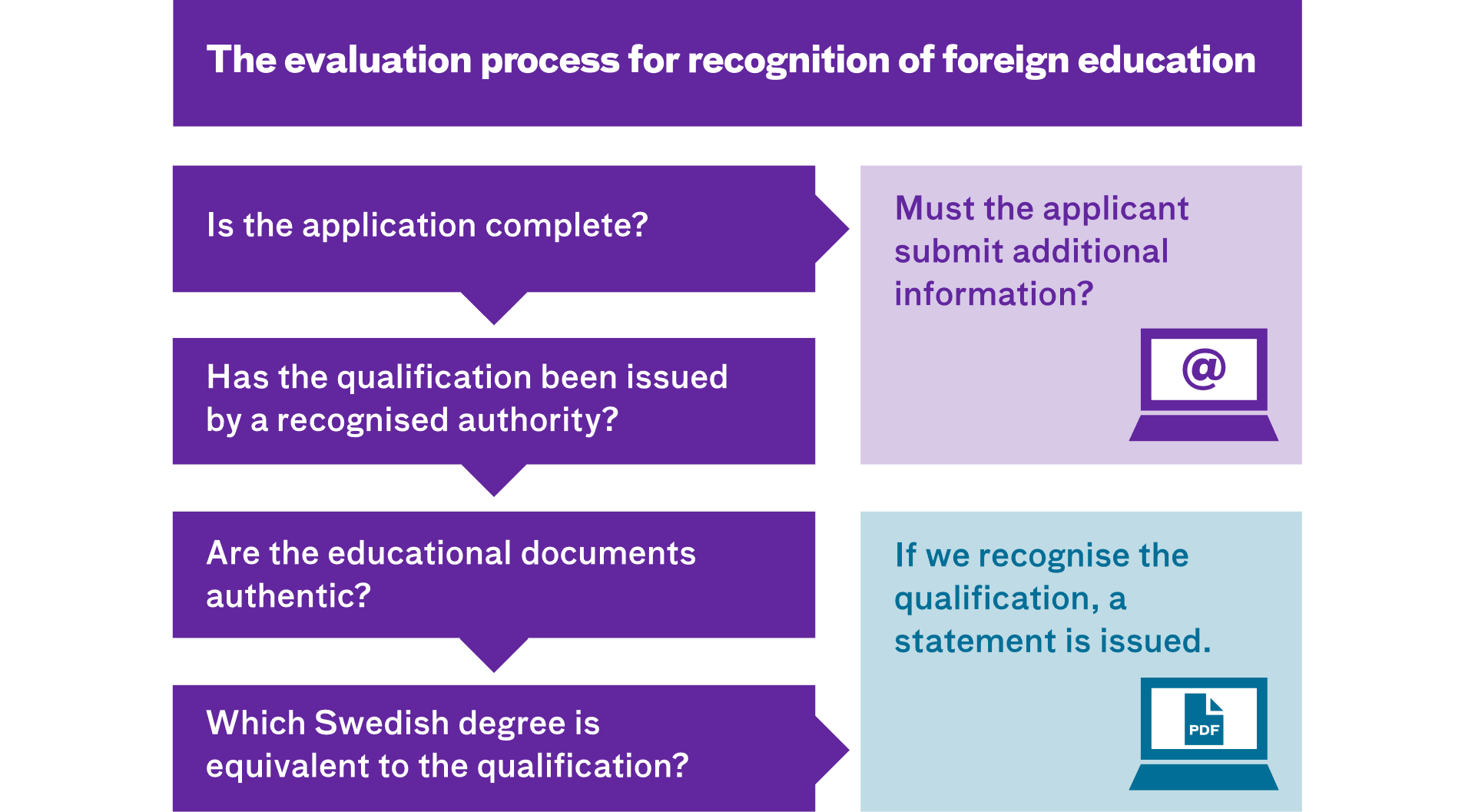The recognition process
Our evaluations of foreign qualifications are based on submitted study documents that show that the qualification has been completed. We evaluate qualifications on upper secondary, post-secondary vocational and higher education level.
The procedure of recognising foreign qualifications is based on the Lisbon Recognition Convention. The ‘recognition’ in question means that a foreign qualification must be recognised unless the recognising authority can demonstrate that the qualification is substantially different from a corresponding qualification in the host country.
Our procedure for evaluating foreign qualifications follows this process:

Is the application complete?
Processing can begin once the application is complete. Common documents are degree certificate/diploma and official transcript, in the original language and translated where necessary. Documents can be uploaded or sent by regular post.
Has the qualification been issued by a recognised institution/authority?
The school or higher education institution (HEI) that issued the qualification must be recognised by the country in which it is based. This means that the country takes responsibility in ensuring that the qualification maintains a particular level of quality. This is checked through contacts with the authorities in the relevant country.
Read more about what a recognised higher education institution (HEIs) is on the ENIC-NARIC website.
Are the educational documents authentic?
We make sure that documents provided are authentic. We might ask for original documents and contact educational authorities for further information.
Which Swedish degree is equivalent to the qualification?
We use a number of criteria during the recognition process. The most important criteria are:
- the profile of the qualification (is it vocational or academic)
- the level (cycle) or place in the foreign education system (does it provide admission to higher education or is at university level)
- the workload of the qualification (official duration of the studies)
- the learning outcomes of the qualification
- whether the foreign qualification is substantially different from a Swedish comparable qualification.
Recognition statement
The recognition statement shows what the foreign qualification is equivalent to in the Swedish educational system. It does not, however, provide a Swedish qualification.
If the qualification is substantially different from the Swedish qualification, you might receive an explanatory letter instead. We explain the reasons and, if possible, refer you to other public authorities and organisations.